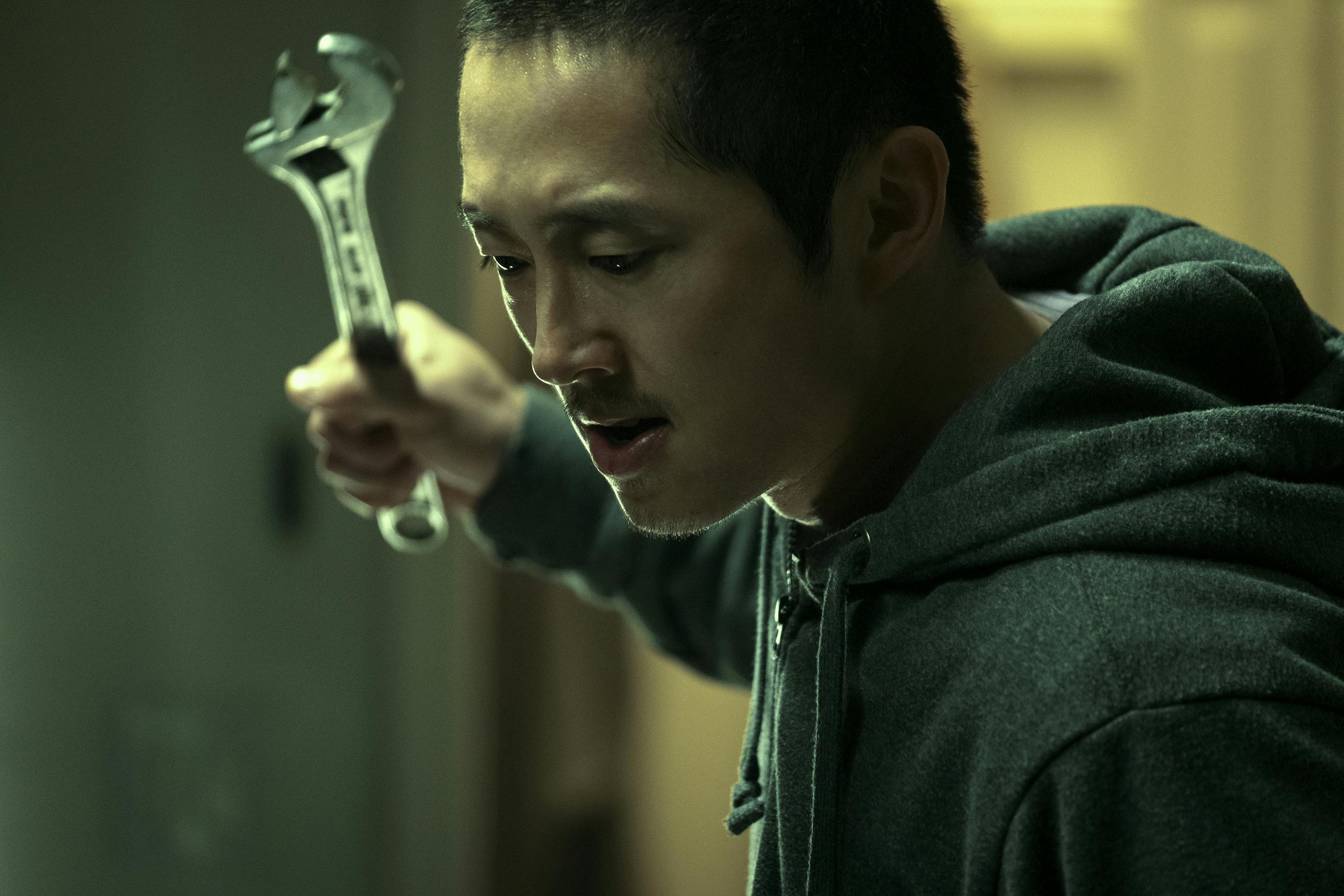Bobby Krlic’s score amps up BEEF’s emotions, hitting its notes of loneliness, fear, and pain in perfect pitch.
On two different continents, from ages 11 to 25, Lee Sung Jin and Bobby Krlic’s music libraries were almost identical. Krlic, a British composer who also makes music under the name The Haxan Cloak, learned that they listened to the same music when Lee came to his house to propose he score the revenge drama BEEF. “He told me his vision for the show,” Krlic says. “There weren’t a ton of questions at the end of it other than: ‘Can I please work on it?’”
Sound is often the first component that Lee, familiarly known as Sonny, thinks about at the beginning of writing, creating, and pitching a project. “[Sonny’s pitches] have music that goes with each moment,” Jake Schreier, who directed six of BEEF’s ten episodes, says of his friend.
In Lee’s series, which follows Danny (Steven Yeun) and Amy’s (Ali Wong) diabolical path of retribution after a road rage incident, the soundtrack and score are instrumental in building the simmering SoCal setting and charting the characters’ loosening grips on their sanity.
For the heightened world of BEEF, which has earned 13 Emmy nominations, Krlic, who also engineered, produced, and played the instruments for the score, tried to capture the bedroom angst of his teenage self. “It was going back to a place of being 14 or 15 with an 8-track recorder, guitar, bass, and drums or whatever I had at the time,” Krlic describes. “Having it feel very D.I.Y. was a big part of it.”
ON SONNY AS A COLLABORATOR AND LEADER:
He pushed me to places with the score that I didn’t know I could get to, and there are pieces of music that we revised 9 or 10 times. There are not a lot of people in this world who really can see the vision that far ahead. He also gives you a part of himself in a way where you really want to work with him and for him. He’s very open.
ON GROWING HIS TOOLKIT FOR SUCH A PARTICULAR PRODUCTION:
My music and approach to scoring is pretty full spectrum and maximalist a lot of the time. Because BEEF is so incredibly specific and nuanced, we worked on finding a way to be really articulate with the score. I made a bunch of pieces ahead of time after reading the scripts. And then from there, it’s more about refinement and picking key elements and actually just reducing until we’re like, Okay, can we say this thing with just one or two sounds? We wanted the score to be able to exist alongside all the needle drops in a way where someone [might try] to Shazam it on their phone — just blurring the lines between what is score and what isn’t.
ON THE MUSIC FOR THE OPENING TITLE CARDS:
The title has to be kind of monolithic — it cuts through and announces itself. Even though it’s a really short title card, we split it into two halves. So the first is always the bum-bum, and then the second half of it is different in every episode and hints emotionally at the specificity of what we’re going to watch, but also, never quite gets there. We found it really funny that it starts announcing itself and before it can even make the statement, it’s chopped off and [goes] straight into the show.
ON SCORING TWO TYPES OF TURMOIL:
Danny is the more outwardly stressed of the two of them. For him, you have these pointed sounds of tense heartbeat stuff and percussion. Amy’s character’s stuff is all on the inside and she presents herself in a way that she’s fine. So with her, it was using more glockenspiels and pianos and violins and softer sounds texturally. With the last episode, that was really a point where all bets were off. Nothing belongs to anyone; anybody can share all these sounds.




